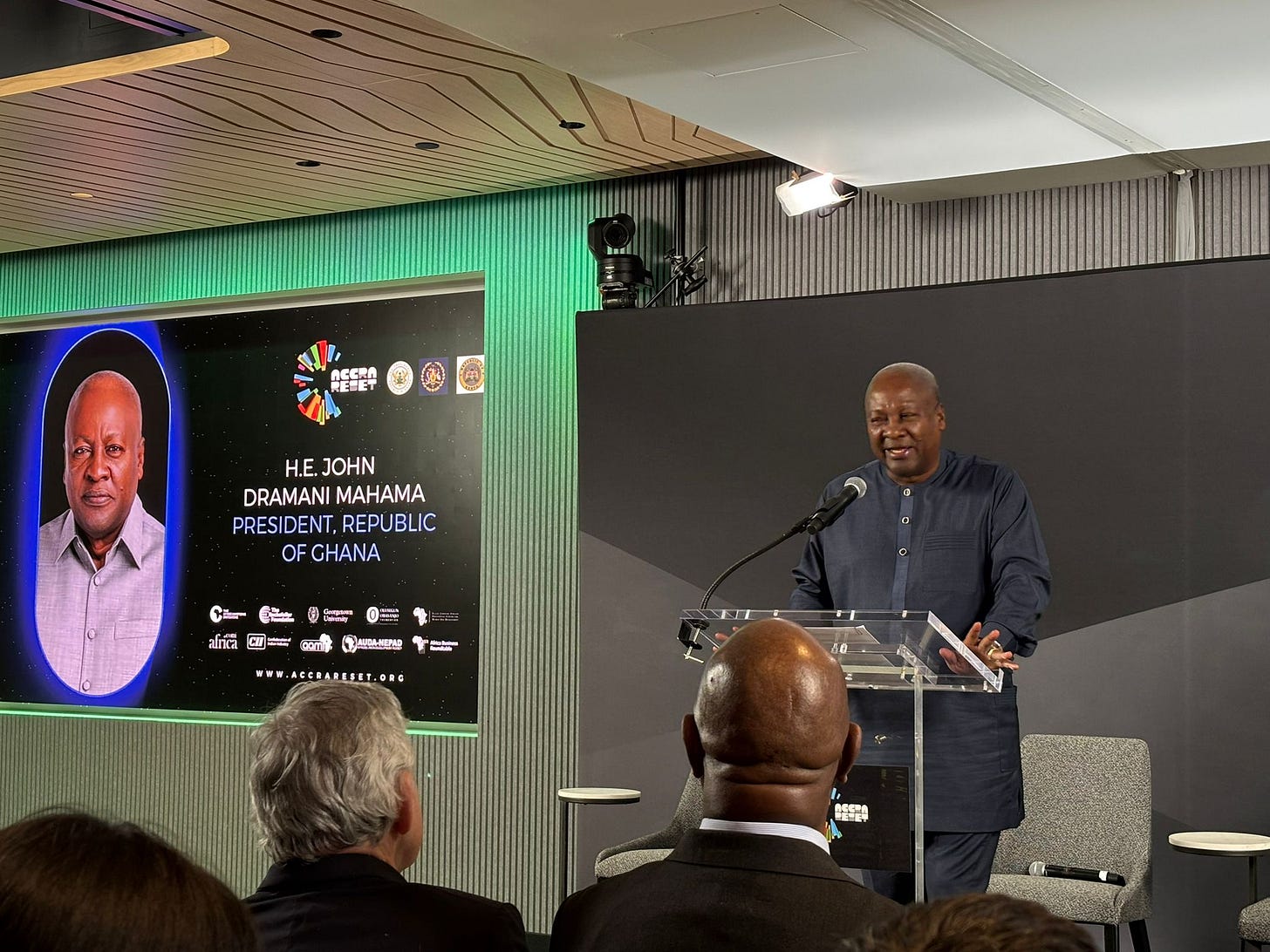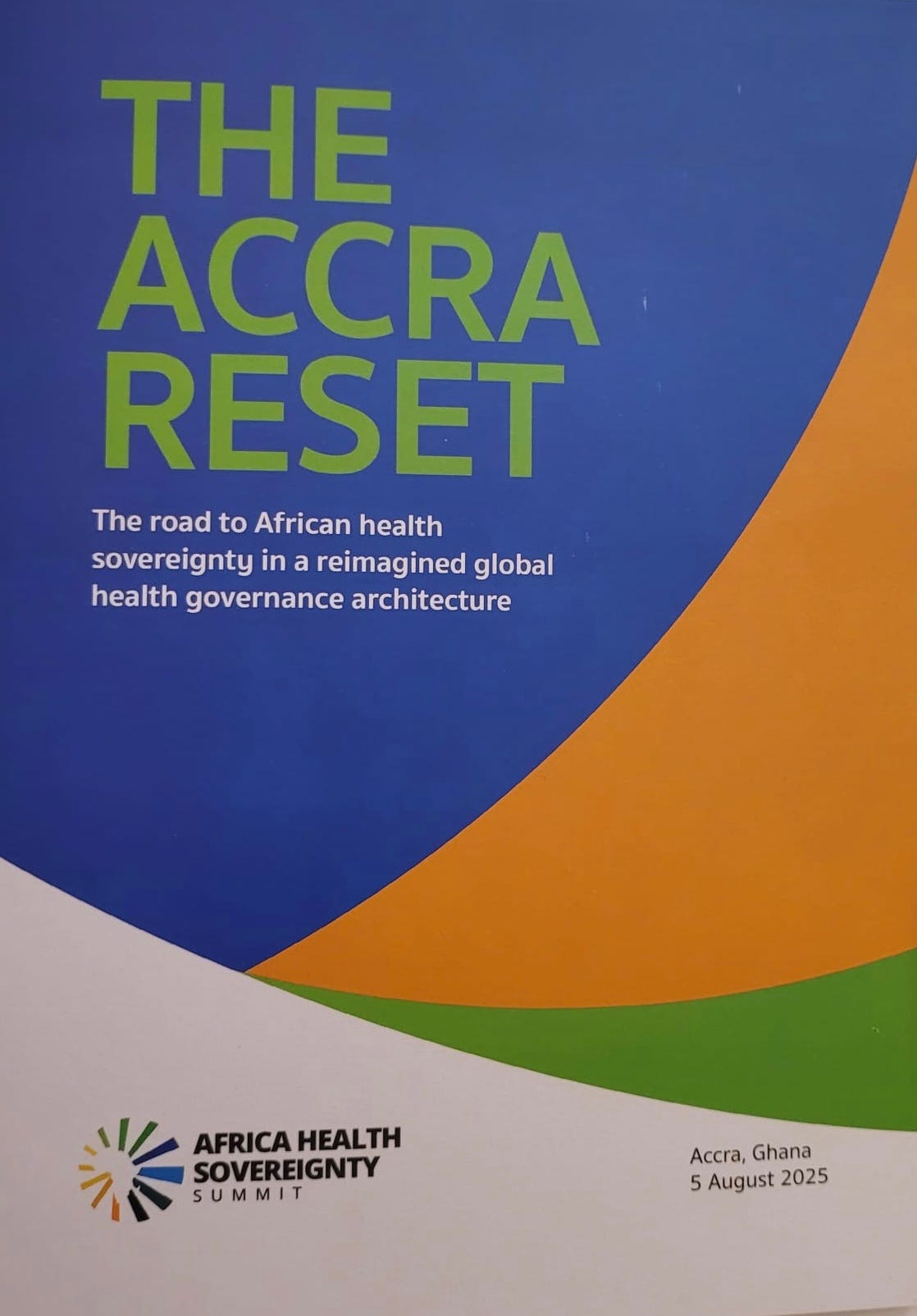On the sidelines of the 80th United Nations General Assembly in New York, Ghana’s President John Dramani Mahama launched the Accra Reset, an ambitious extension of the Accra Compact. While the Compact set the vision for health sovereignty, the Reset seeks to carry that vision into global spaces, align African priorities with multilateral commitments, and turn pledges into tangible action.
In August 2025, leaders at the Africa Health Sovereignty Summit in Accra laid out a plan to reset Africa’s path toward health sovereignty. A key step was to socialise and mobilise the Accra Initiative, taking it from country capitals to AU Summits and the United Nations General Assembly in order to shape global rules on how funding is raised, how progress is reported, and how results are measured.
A month later, that vision is beginning to take shape. At the ongoing UN General Assembly in New York, a high level side event themed Accra Reset: Reimagining Global Governance for Health and Development is spotlighting the Accra Initiative as a model for how countries in Africa can transition from aid dependency to self-reliance. “The models that were built to drive development cannot sustain us in this new dispensation of time hence the reason why leaders are calling for a reset of the development order” said President Mahama in his opening remarks.
After the USAID funding cut, Ghana was left with a $156 million hole in funding for healthcare projects, including PEPFAR programmes such as HIV testing, antiretroviral treatment and medical research. President Mahama responded by lifting the cap on the National Health Insurance Levy. Previously, any revenue above a set threshold was diverted into the government’s general fund for salaries and other expenses. Removing that cap freed up an additional 3.5 billion Ghana cedis, channelled directly into the health system, enough to replace the lost USAID funding and keep critical programmes running.
This move reflects the fourth commitment made at the Accra Summit: to showcase early adopters. By demonstrating in real time how domestic resource mobilisation can deliver measurable results, Ghana is positioning itself as a leading example, while urging other governments to think creatively about shifting resources from lower priorities to areas that can drive tangible impact.
Former Nigerian President Olusegun Obasanjo, co-convener of the Accra Initiative during his remarks emphasised that solidarity should be seen as justice, not charity. He recalled how debt relief campaigns and the global fight against HIV/AIDS demonstrated that international cooperation could save millions of lives when anchored in strong institutions. He made reference to the Ebola outbreak in West Africa, when African governments and private sector actors mobilised over $30 million to send AU specialists to affected countries, evidence that African-led responses can be effective. His message showed that solidarity is most powerful when institutionalised, rather than left to political whims or cycles.
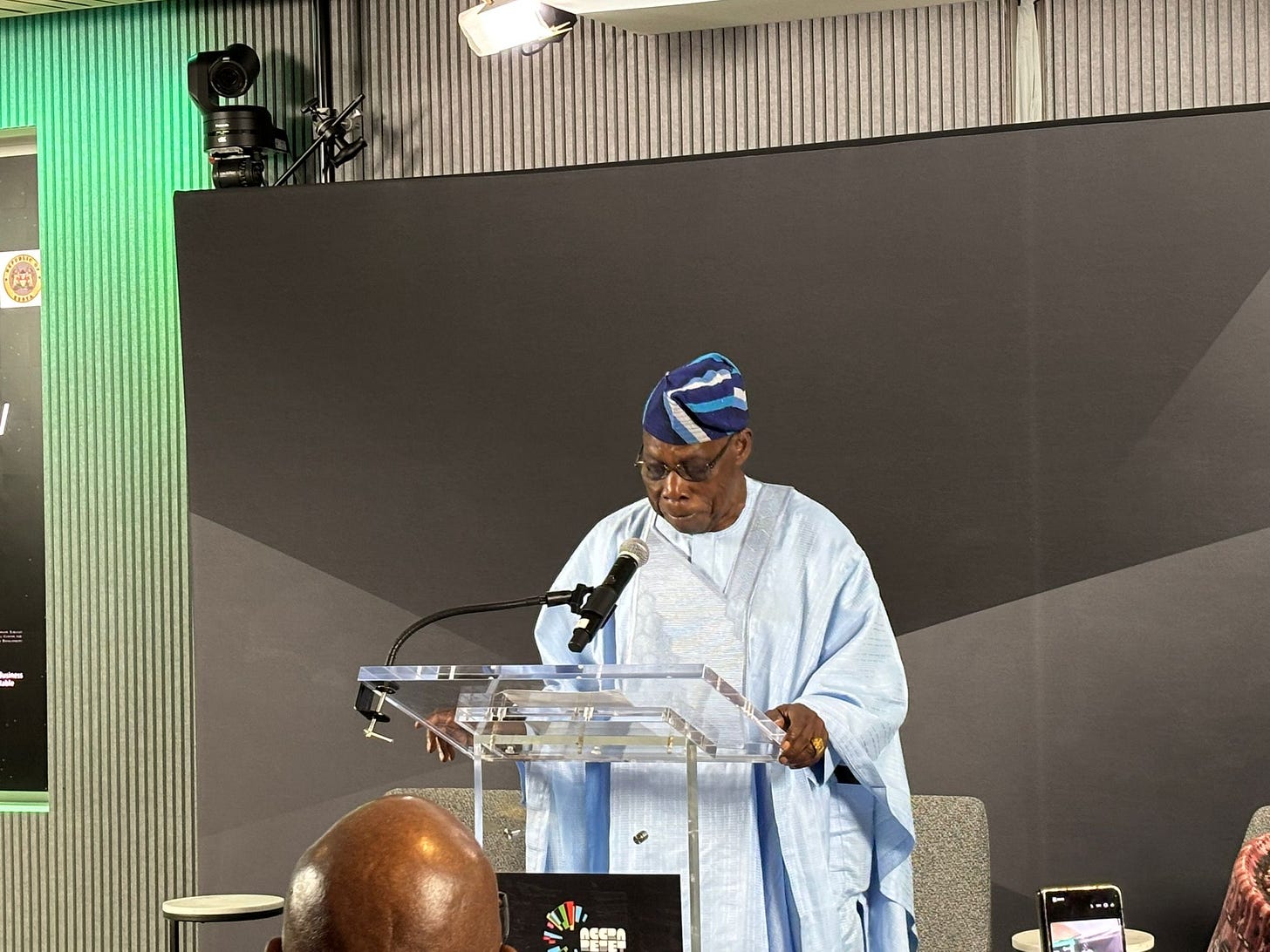
Making the case for why trade must be central to the Accra Reset, the Director-General of the World Trade Organisation, Dr Ngozi Okonjo-Iweala, stressed that building sustainable manufacturing capacity in Africa, will require stronger trade cooperation, both regionally and globally. She noted that the challenge goes beyond supply security:
“Beyond security of supply, there is also a social dimension. The idea that vaccines, diagnostics, and therapeutics are made in Africa for Africans could help counter the rise of vaccine skepticism spreading online and on social media.”
~ Dr Ngozi Okonjo-Iweala
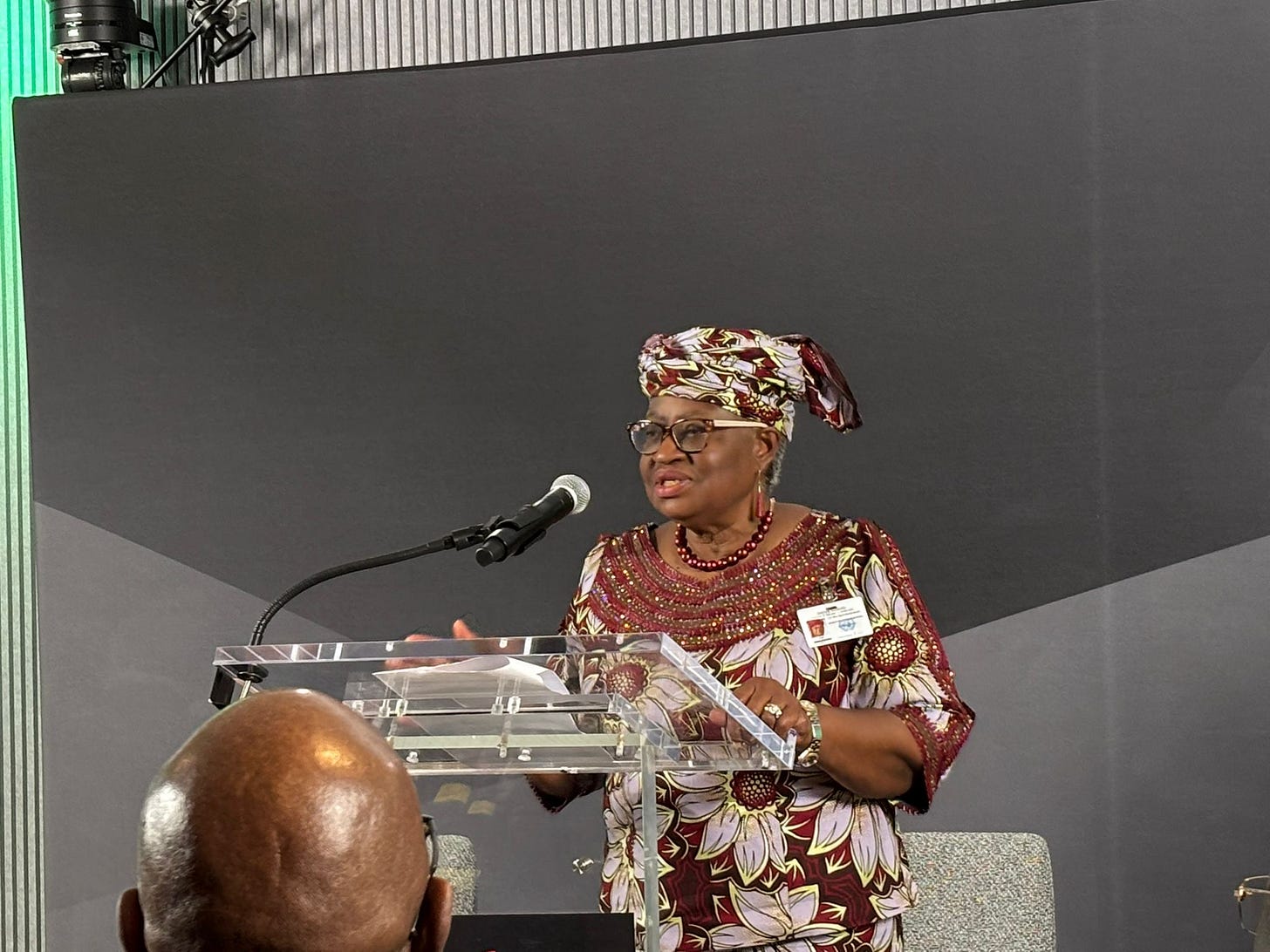
The world has seen the consequences of Africa being left at the back of the line. During the HIV/AIDS crisis of the early 2000s, sub-Saharan Africa was hit hardest, with over 3 million new infections and 2.3 million AIDS-related deaths in a single year, more than 95% of them from low- and middle-income countries. Building on this experience, Winnie Byanyima, Executive Director of UNAIDS, was asked what we cannot afford to carry into 2030. She highlighted three lessons that must guide the future: ensuring equitable access to new health innovations, putting communities at the centre of service delivery, and tackling the social determinants of health.
Ghana’s Minister of Health, Hon. Kwabena Mintah Akandoh, speaking on the implementation of these lessons, noted that removing the cap on the National Health Insurance Levy enabled the government to direct revenue where it was needed most. This, he explained, made free primary health care possible, supported specialist care through the Ghana Medical Trust Fund known as Mahama Care and laid the groundwork for Ghana’s ambition to become a pharmaceutical hub.
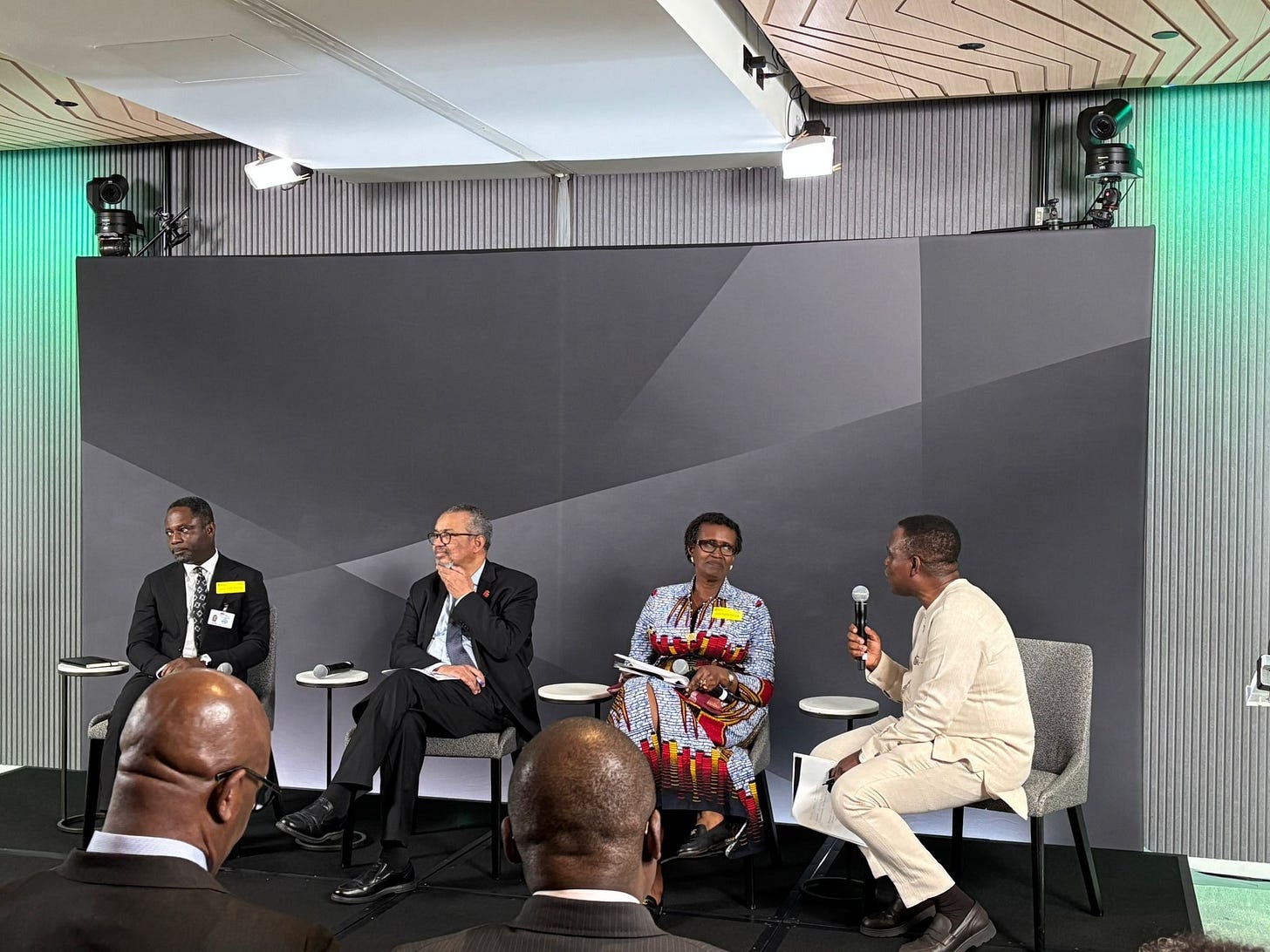
Speaking on partnerships and their role in driving these reforms, Dr. Tedros Adhanom Ghebreyesus, Director-General of the World Health Organization, stressed that Africa must adopt a mindset shift, and demand fair terms from partners rather than accepting charity. Citing Ghana’s decision to cover USAID funding gaps as an example of what is possible, he noted that health taxes on harmful products such as alcohol and tobacco could unlock resources, while long-term investments in insurance systems would provide sustainable funding for resilient health systems.
Echoing this vision, former UK Prime Minister Gordon Brown, in his solidarity message emphasised the importance of health sovereignty as African-owned, nationally led, and locally delivered healthcare systems. He commended Ghana’s free primary health care initiative as a model for the continent, urging leaders to consider what could be achieved through collective action.
Together, these perspective capture the essence of the Accra Reset. Countries taking charge of their own health financing, drawing on local solutions, and engaging in fair global partnerships to ensure that everyone has access to healthcare, regardless of location or societal status.
Why this matters
For too long, African countries have relied heavily on external aid, leaving health systems vulnerable when funding is cut or delayed. The Accra Reset seeks to change this by showing that countries can take control of their own health financing, using domestic resources, innovative approaches, and African-led solutions.
While the global health system must rethink whose lives are prioritised and on what terms, African countries are proving that they can lead and innovate. History reminds us, however that delayed access to life-saving medicines, as seen during the HIV/AIDS crisis, can cost millions of lives and stall development gains.
Even though funding is a central part of the Accra Reset, the conversation goes beyond finance. It is about building health sovereignty, creating resilient systems, and ensuring that quality care is accessible to all. In doing so, the Accra Reset is not just a call for resources, but a call for fairness, dignity, and a new development order where Africa’s voice shapes the rules. What must also be clear is that the Accra Reset needs a clear roadmap for implementation, and this must be clearly articulated if the vision is to move from aspirations to results.


